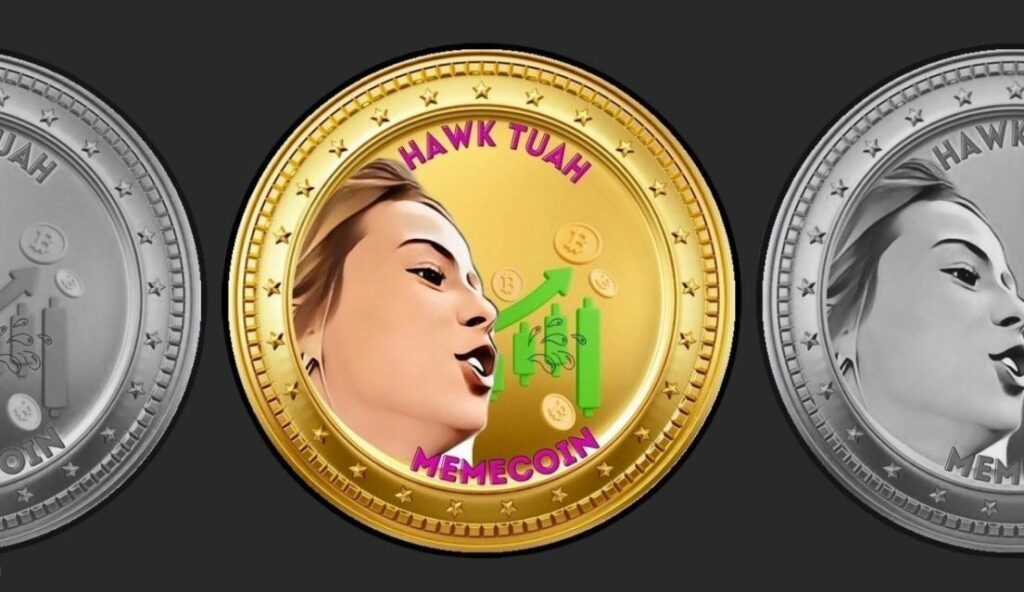
Haliey Welch, better known online as the “Hawk Tuah Girl,” is finally breaking her silence about the crypto controversy that unfolded late last year. In a new podcast episode of Talk Tuah, Welch gives an exclusive, behind-the-scenes account of what happened after her viral fame turned into a meme coin disaster, and how federal investigators got involved.

From Viral Star to Crypto Target
Welch shot to internet stardom in the summer of 2024 after her now-iconic street interview with Tim & Dee TV went viral. In the clip, she famously described her “Hawk Tuah” move, quickly becoming a meme and a pop culture sensation.
But just months later, that fame took a dark turn.
In December 2024, a new meme coin called $HAWK launched, seemingly tied to Welch’s viral persona. The token quickly gained attention and investor money. But within days, the coin crashed. Investors were furious, and a lawsuit was filed in New York against the coin’s creators.
Though Welch had not launched or managed the project herself, her name and likeness were heavily tied to the token. Many believed she had endorsed the coin or was involved behind the scenes.
FBI Came Knocking
On her May 2025 podcast episode, Welch shared new details about the intense scrutiny that followed the coin’s collapse.
“They came to my grandma’s house,” Welch said, referring to a surprise visit by the FBI. “They wanted to see my phone, so I was like, ‘OK, well, that’s not a problem.’”
According to Welch, federal agents interrogated her, asking questions about the coin, her role in its promotion, and any communication she may have had with those behind the project. “They went through my phone,” she added. “They cleared me. I was good to go.”
The FBI wasn’t the only federal agency that got involved. Welch also revealed that the U.S. Securities and Exchange Commission (SEC) took interest in the case.
While the SEC didn’t request an in-person interview, they asked for access to her phone. Welch said she shipped her device to them for “two or three days.”
“I guess they cloned my phone, copied it, something,” she said. “But they went through my phone. I was cleared from them, and I wasn’t named on the lawsuit, either.”
Not on the Lawsuit but Still Feeling the Heat
Although Welch was never officially listed as a defendant in the investor lawsuit, she says the emotional toll has been heavy.
In the podcast, she expressed guilt and frustration over the situation. “It makes me throw up,” she said, referring to how fans put their trust in her name. “I wish we knew then what we know now.”
Welch emphasized that she did not have full knowledge about the inner workings of the meme coin project. She admitted to learning some hard lessons about trust and reputation. “I don’t have anything to hide,” she said. “This taught me who to really trust in this world.”
Clearing Up the Money Trail
There’s also been confusion about just how much money was lost in the $HAWK coin crash. Some early reports claimed $1.2 million had vanished from investor wallets.
Welch, however, disputes that figure. On her podcast, she clarified that the actual losses were closer to $180,000. While still a significant amount, she believes the inflated number only added more chaos to an already messy situation.

The Bigger Picture: Influencers and Crypto Hype
Welch’s experience isn’t an isolated one. In recent years, many social media influencers have found themselves tied to crypto projects, some legit, others questionable.
In many cases, influencers promote meme coins or NFTs without fully understanding the technical or financial implications. When these projects fail or turn out to be scams, fans often feel betrayed, and influencers risk legal and reputational damage.
Welch’s story adds to a growing debate about responsibility and transparency in the world of crypto endorsements.
Should influencers be held accountable for coins that use their likeness, even if they didn’t directly profit or promote them? And should meme coins, often built on hype more than utility, be subject to stricter regulations?
Lessons Learned and Moving On
Despite the drama, Welch says she’s focused on moving forward. Her podcast, Talk Tuah, continues to grow in popularity, and she’s using the platform to reflect on both her personal journey and viral fame.
“This has been a wild ride,” she said. “But I’m stronger for it.”
Welch wants fans to know she’s learned from the experience and that she takes the trust placed in her seriously. “If you’re going to put your name on something, even just as a joke, you better know exactly what it is,” she added.
Conclusion: A Wake-Up Call for Crypto Culture
The $HAWK coin crash is a cautionary tale for today’s crypto-fueled internet culture. It shows what can happen when viral fame meets unregulated financial hype.
While Welch has been cleared by the FBI and the SEC, the situation has left a lasting mark. It also highlights the need for clearer boundaries between influencers and financial products, and the dangers of meme coins that rise and fall on social buzz alone.
For Haliey Welch, the “Hawk Tuah Girl,” this scandal was more than just a headline. It was a personal wake-up call—and a public lesson in the risks of digital currency gone wrong.























